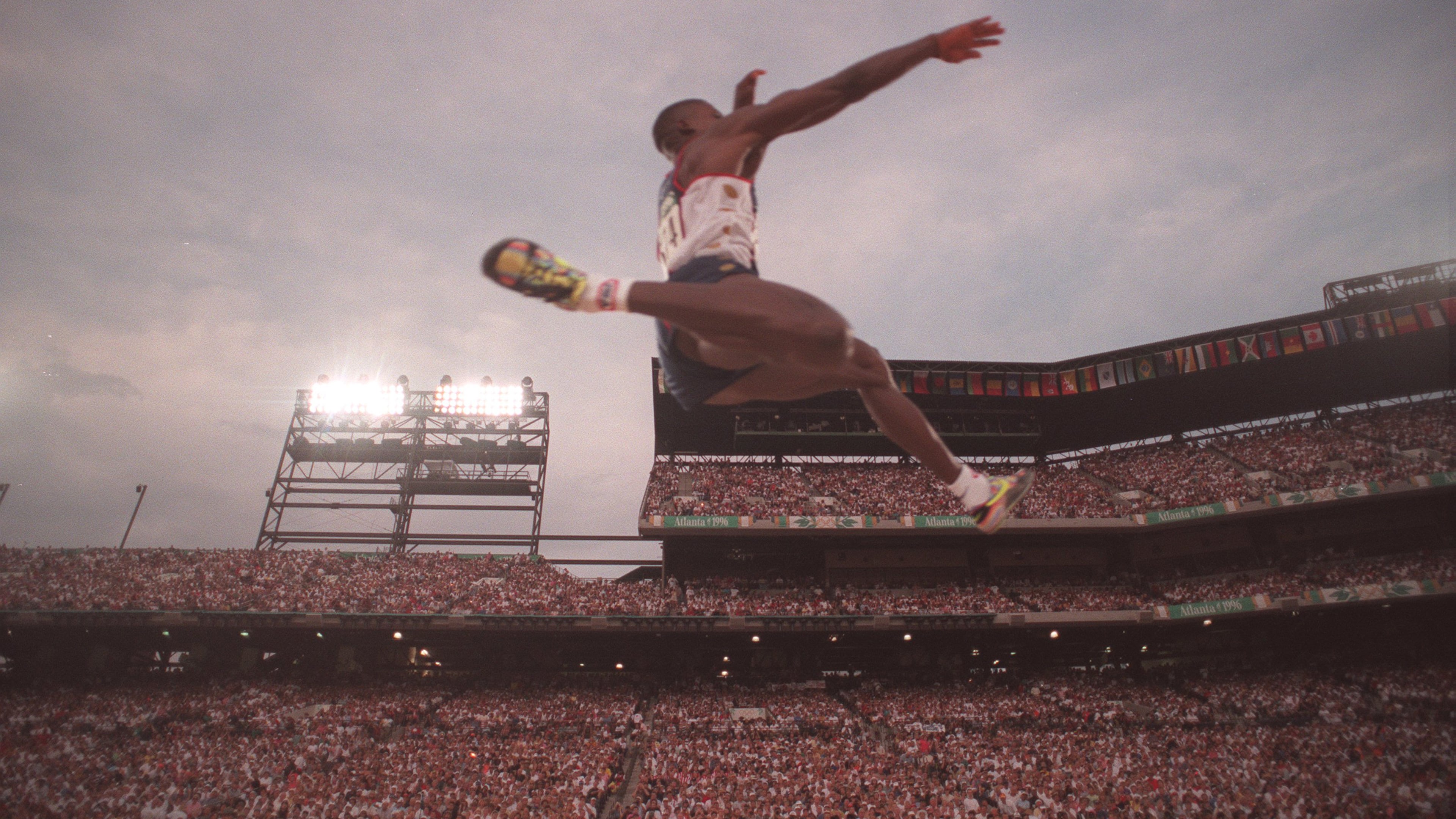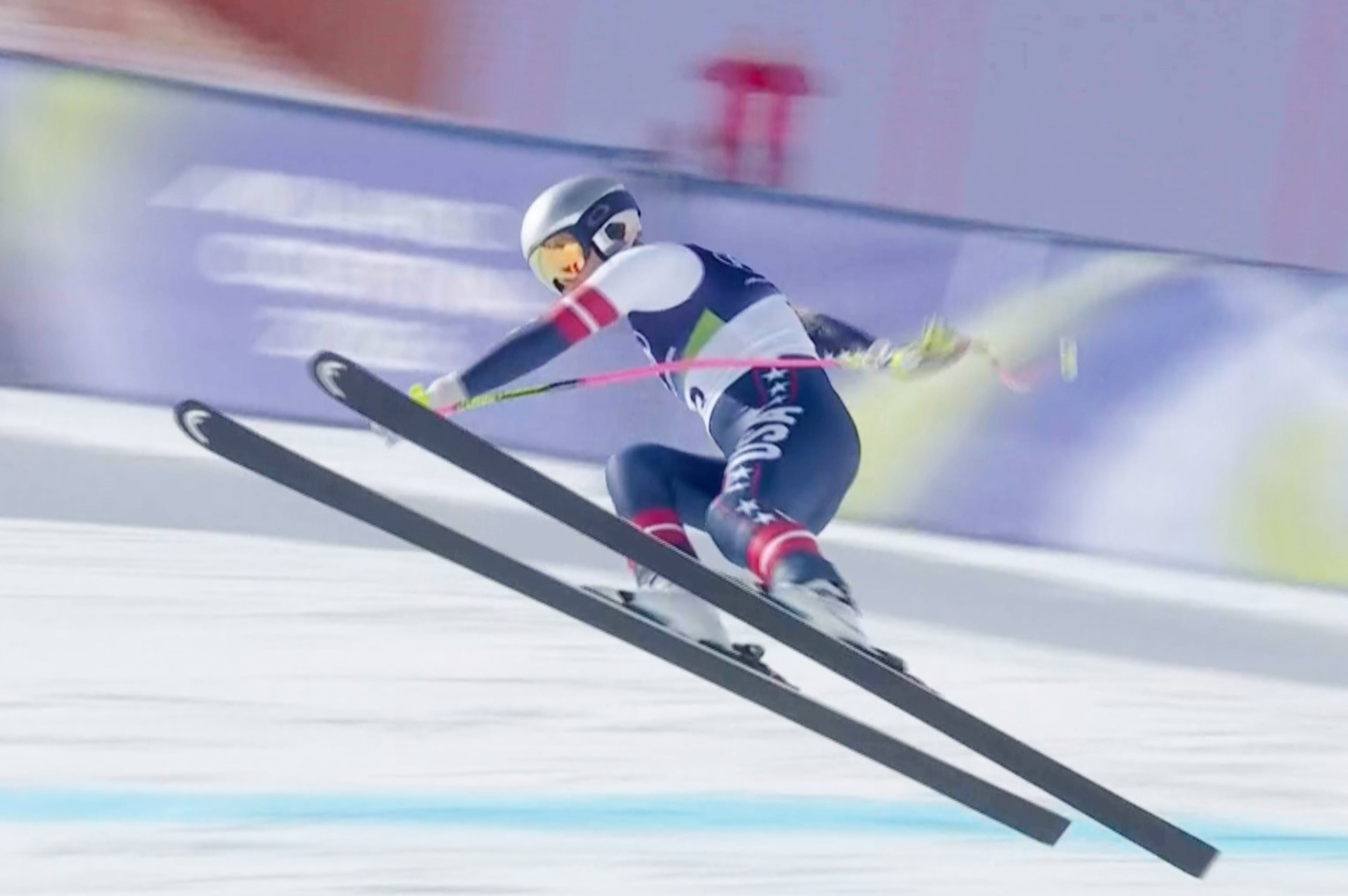Remembering my time at the Atlanta Olympics

I watched with rapt attention the Olympic gymnasts as they moved through their routines. Their athleticism makes you want to execute a perfect pirouette at the bottom of the stairs, leap forcefully over an ottoman, or at the very least, work on your biceps and invest in glittery new eye shadow.
The grace, the strength, the years of preparation! The outfits!

And, yet, as much of a thrill as it was to watch athletes at the top of their form, admittedly distracted by the spangles, there was another kind of outfit I looked for: the teal and navy shirts of the Paris volunteers.
As one of five Olympic Village managers for the 1996 Centennial Olympic Games in Atlanta, I know it takes hundreds of people, who have all taken weeks out of their ordinary lives, to make the Games run. For two years prior to the ’96 Games, the Olympic Village staff held obligatory weekly training for more than 200 volunteers, our Olympic Village envoys, who would eventually lead their own teams of volunteers in support of the 196 (and by the time of the Games, 197) countries recognized by the International Olympic Committee. They showed up every Tuesday night for two years.
As a staffer, I had to check on the volunteers, and I made it a game to learn all their names so I could greet them each week. They were giddy, proud and dedicated to these classes, which covered everything from the history of the Games to how to make sure the extra-long beds arrived to what to do in case of a defection (turns out I was the only one who needed that particular training session). Some of our volunteers were accomplished and wealthy; here’s looking at you, Tony De Leede, the man who started Australian Body Works and invented Cardio Theatre. Not only did De Leede lead the envoy team for Australia, but he also helped organize the Olympic Village Health Club, went on to work with the Games in Sydney and now hobnobs with the likes of Hugh Jackman. He will hobnob with you, too; he is an extraordinarily nice guy, like all the envoys. Our volunteers were pilots for Delta Air Lines, entrepreneurs, teachers, lawyers, bankers, businesspeople of all kinds, immigrants, restaurant owners. No matter who they were, they came in the door with energy and commitment, lifted each other up, laughed together and bonded in that heady atmosphere that made you believe you were a part of something that could change the world.
This part of the Olympic movement gets mentioned only in passing every four years. These Games are meant to bring together athletes from all over the world to compete as best they can — yes, faster, higher, stronger — and to leave with new bonds, new friendships and an understanding of the human experience, of human courage, that will transcend the artificial barriers that so often divide us (borders, wars, economic status and political conflicts).
The Olympic Village, a secure zone where the athletes lived and trained, is intended to be the place for this. The volunteers understood this breaking down of barriers: They experienced it among themselves, and they came to the Games with a sincere will to create that environment for the athletes, their coaches and their staff. We heard from the likes of Andrew Young and Alan Greenspan, who visited our training sessions more than once.

In the two years before the Games, we held repeated meetings with members of the National Olympic Committees, and we sometimes asked our volunteers to entertain our guests, to build the rapport they would need to rely on during the Games. No Zoom meetings back then — the internet was not even widely available — so we had to meet in person in Atlanta.
That proximity provided good laughs, not just for us but for our international visitors, too. German Envoy Peter Halpaus came into our offices at one point, laughing his head off after an evening with the German delegation, for whom he had secured tickets to the Cirque du Soleil, the night prior. They had good seats, not far from the stage. That year’s performance included a “Strong Man,” who lifted heavy weights to impress the audience. To prove the weights were real, the Strong Man would select someone from the audience to try to lift the weights. By chance that night, he selected a member of the German delegation — a former Bronze medalist in weightlifting — who executed a perfect clean-and-jerk. The Strong Man, aghast, managed to recover by lifting the weights himself again — with his teeth.
At the Olympic Village, we were fully staffed for two weeks before and two weeks after the Games, six weeks in all, with morning meetings held to troubleshoot concerns of the National Olympic committee leaders, the “Chefs de Mission.”
Every morning and every event brought its challenges, many of which our volunteers had to tackle. Our golf cart was missing again! The Swedish delegation is refusing to eat in the food tent because they think the authentic kimchi smells bad! The sticky rice is not sticky! Or a national anthem gets changed just days before the Games start. That actually happened with South Africa, who had a potential gold medalist in the 100-meter breaststroke with swimmer Penny Heyns. Lynda Guy, an associate envoy for South Africa, had to get to a recording studio in downtown Atlanta that could receive a satellite signal from South Africa with the new anthem and copy it onto a cassette tape. Guy literally ran to the swimming venue — handing the tape over seconds before Heyns stepped onto the podium to receive her gold medal.
The Olympic Village was run by Steve Kittell, an experienced Olympic organizer and our fearless and rather feared leader, who was the original architect of the Olympic Village Envoy program. In a statement that probably would make any human resources department quiver these days, he told the female staff the last thing they should do is get pregnant. So of course, that was the last thing I did. I was in my ninth month during the Games. Baby shower in the Olympic Village? Yeah, that might have been a first.
One night during the Games, as managers headed to our evening meeting in another building, a secretary ran after us, saying she needed a manager. Because I was the slowest, thanks to the pregnancy, the task fell to me. I returned to our office and took a phone call from someone asking to speak with immigration officials. I had a defector! I reached out to the security command post, as instructed in our training, but the Army corporal who answered had not been to our sessions and did not know how to help me. I told him I would handle it. I returned to the original caller and said, “Meet me by the fountain in the middle of the Village. I am nine months pregnant; you can’t miss me.” He agreed. A National Park police officer, radio on his shoulder, shadowed me to the fountain and then led the asylum-seeking athlete to the exit, on his way to safety and perhaps a whole new life. Again, a volunteer saved the day.
All the volunteers wanted to make a difference for the athletes, and they wound up making a difference for each other and for me, too. When one of our Envoys lost his son in a tragic accident on a crowded Atlanta highway, we came together to grieve and remember. His son is not forgotten, not even today. Guy, of the South African envoy team, wound up working with me after the Games, spending countless hours with my then-4-year-old son with disabilities, working with a whole new team of volunteers, teaching him to speak, to sing, to play, to love with an open heart.
We wanted to change the world through the Games. I can say for certain the Games changed my world. As I watched this year’s Olympic coverage, hoping the athletes had the time of their lives, I looked for the people on the margins, the people wearing those volunteer shirts. I wondered how they were helping the athletes and each other. I am grateful that, in their own way, they, too, are changing the world.
Laura Franc is a writer and essayist who has previously published in The Atlanta Journal-Constitution, Newsweek and smaller local papers. She teaches French at Milton Academy near Boston.


